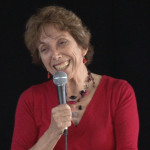My reading
Haftarah Parashat Va-yishlach
Obadiah 1:1- 21
1:1 חֲז֖וֹן עֹֽבַדְיָ֑ה כֹּֽה־אָמַר֩ אֲדֹנָ֨י יְהוִ֜ה לֶאֱד֗וֹם שְׁמוּעָ֨ה שָׁמַ֜עְנוּ מֵאֵ֤ת יְהוָה֙ וְצִיר֙ בַּגּוֹיִ֣ם שֻׁלָּ֔ח ק֛וּמוּ וְנָק֥וּמָה עָלֶ֖יהָ לַמִּלְחָמָֽה׃
1:2 הִנֵּ֥ה קָטֹ֛ן נְתַתִּ֖יךָ בַּגּוֹיִ֑ם בָּז֥וּי אַתָּ֖ה מְאֹֽד׃
1:3 זְד֤וֹן לִבְּךָ֙ הִשִּׁיאֶ֔ךָ שֹׁכְנִ֥י בְחַגְוֵי־סֶּ֖לַע מְר֣וֹם שִׁבְתּ֑וֹ אֹמֵ֣ר בְּלִבּ֔וֹ מִ֥י יוֹרִדֵ֖נִי אָֽרֶץ׃
1:4 אִם־תַּגְבִּ֣יהַּ כַּנֶּ֔שֶׁר וְאִם־בֵּ֥ין כּֽוֹכָבִ֖ים שִׂ֣ים קִנֶּ֑ךָ מִשָּׁ֥ם אוֹרִֽידְךָ֖ נְאֻם־יְהוָֽה׃
1:5 אִם־גַּנָּבִ֤ים בָּאֽוּ־לְךָ֙ אִם־שׁ֣וֹדְדֵי לַ֔יְלָה אֵ֣יךְ נִדְמֵ֔יתָה הֲל֥וֹא יִגְנְב֖וּ דַּיָּ֑ם אִם־בֹּֽצְרִים֙ בָּ֣אוּ לָ֔ךְ הֲל֖וֹא יַשְׁאִ֥ירוּ עֹלֵלֽוֹת׃
1:6 אֵ֚יךְ נֶחְפְּשׂ֣וּ עֵשָׂ֔ו נִבְע֖וּ מַצְפֻּנָֽיו׃
1:7 עַֽד־הַגְּב֣וּל שִׁלְּח֗וּךָ כֹּ֚ל אַנְשֵׁ֣י בְרִיתֶ֔ךָ הִשִּׁיא֛וּךָ יָכְל֥וּ לְךָ֖ אַנְשֵׁ֣י שְׁלֹמֶ֑ךָ לַחְמְךָ֗ יָשִׂ֤ימוּ מָזוֹר֙ תַּחְתֶּ֔יךָ אֵ֥ין תְּבוּנָ֖ה בּֽוֹ׃
1:8 הֲל֛וֹא בַּיּ֥וֹם הַה֖וּא נְאֻם יְהוָ֑ה וְהַאֲבַדְתִּ֤י חֲכָמִים֙ מֵֽאֱד֔וֹם וּתְבוּנָ֖ה מֵהַ֥ר עֵשָֽׂו׃
1:9 וְחַתּ֥וּ גִבּוֹרֶ֖יךָ תֵּימָ֑ן לְמַ֧עַן יִכָּֽרֶת־אִ֛ישׁ מֵהַ֥ר עֵשָׂ֖ו מִקָּֽטֶל׃
1:10 מֵחֲמַ֛ס אָחִ֥יךָ יַעֲקֹ֖ב תְּכַסְּךָ֣ בוּשָׁ֑ה וְנִכְרַ֖תָּ לְעוֹלָֽם׃
1:11 בְּיוֹם֙ עֲמָֽדְךָ֣ מִנֶּ֔גֶד בְּי֛וֹם שְׁב֥וֹת זָרִ֖ים חֵיל֑וֹ וְנָכְרִ֞ים בָּ֣אוּ שערו [שְׁעָרָ֗יו] וְעַל־יְרוּשָׁלִַ֙ם֙ יַדּ֣וּ גוֹרָ֔ל גַּם־אַתָּ֖ה כְּאַחַ֥ד מֵהֶֽם׃
1:12 וְאַל־תֵּ֤רֶא בְיוֹם־אָחִ֙יךָ֙ בְּי֣וֹם נָכְר֔וֹ וְאַל־תִּשְׂמַ֥ח לִבְנֵֽי־יְהוּדָ֖ה בְּי֣וֹם אָבְדָ֑ם וְאַל־תַּגְדֵּ֥ל פִּ֖יךָ בְּי֥וֹם צָרָֽה׃
1:13 אַל־תָּב֤וֹא בְשַֽׁעַר־עַמִּי֙ בְּי֣וֹם אֵידָ֔ם אַל־תֵּ֧רֶא גַם־אַתָּ֛ה בְּרָעָת֖וֹ בְּי֣וֹם אֵיד֑וֹ וְאַל־תִּשְׁלַ֥חְנָה בְחֵיל֖וֹ בְּי֥וֹם אֵידֽוֹ׃
1:14 וְאַֽל־תַּעֲמֹד֙ עַל־הַפֶּ֔רֶק לְהַכְרִ֖ית אֶת־פְּלִיטָ֑יו וְאַל־תַּסְגֵּ֥ר שְׂרִידָ֖יו בְּי֥וֹם צָרָֽה׃
1:15 כִּֽי־קָר֥וֹב יוֹם־יְהוָ֖ה עַל־כָּל־הַגּוֹיִ֑ם כַּאֲשֶׁ֤ר עָשִׂ֙יתָ֙ יֵעָ֣שֶׂה לָּ֔ךְ גְּמֻלְךָ֖ יָשׁ֥וּב בְּרֹאשֶֽׁךָ׃
1:16 כִּ֗י כַּֽאֲשֶׁ֤ר שְׁתִיתֶם֙ עַל־הַ֣ר קָדְשִׁ֔י יִשְׁתּ֥וּ כָֽל־הַגּוֹיִ֖ם תָּמִ֑יד וְשָׁת֣וּ וְלָע֔וּ וְהָי֖וּ כְּל֥וֹא הָיֽוּ׃
1:17 וּבְהַ֥ר צִיּ֛וֹן תִּהְיֶ֥ה פְלֵיטָ֖ה וְהָ֣יָה קֹ֑דֶשׁ וְיָֽרְשׁוּ֙ בֵּ֣ית יַֽעֲקֹ֔ב אֵ֖ת מוֹרָֽשֵׁיהֶם׃
1:18 וְהָיָה֩ בֵית־יַעֲקֹ֨ב אֵ֜שׁ וּבֵ֧ית יוֹסֵ֣ף לֶהָבָ֗ה וּבֵ֤ית עֵשָׂו֙ לְקַ֔שׁ וְדָלְק֥וּ בָהֶ֖ם וַאֲכָל֑וּם וְלֹֽא־יִֽהְיֶ֤ה שָׂרִיד֙ לְבֵ֣ית עֵשָׂ֔ו כִּ֥י יְהוָ֖ה דִּבֵּֽר׃
1:19 וְיָרְשׁ֨וּ הַנֶּ֜גֶב אֶת־הַ֣ר עֵשָׂ֗ו וְהַשְּׁפֵלָה֙ אֶת־פְּלִשְׁתִּ֔ים וְיָרְשׁוּ֙ אֶת־שְׂדֵ֣ה אֶפְרַ֔יִם וְאֵ֖ת שְׂדֵ֣ה שֹׁמְר֑וֹן וּבִנְיָמִ֖ן אֶת־הַגִּלְעָֽד׃










